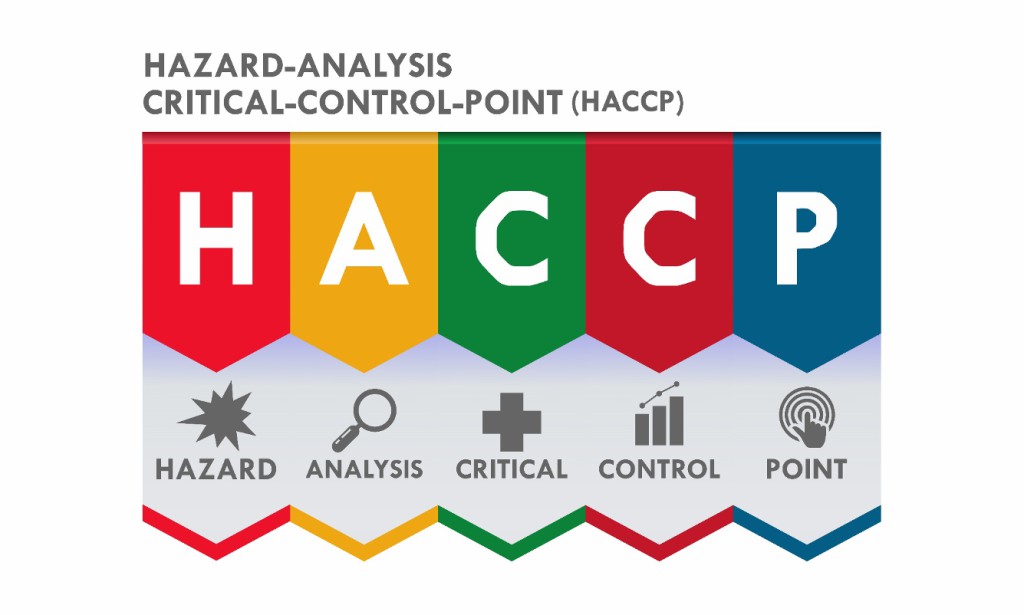HACCP Certification: The Ultimate Guide to Food Safety Compliance in Dublin, Cork, Galway, and Beyond
In the vibrant food landscape of Ireland, especially in cities like Dublin, Cork, Galway, Limerick, Waterford, and Belfast, ensuring food safety compliance is not just regulatory—it's essential for the success and reputation of any food-related business. At the heart of this compliance is ***Hazard Analysis Critical Control Point (HACCP)*** training, which plays a pivotal role in safeguarding public health.
Why HACCP Certification is Important for Food Businesses in Ireland
HACCP certification is mandated by EU food safety legislation and is critical for all food businesses. Compliance with HACCP principles not only ensures adherence to legal requirements but also enhances operational efficiency and customer trust.
What is HACCP? Understanding its Role in Food Hygiene and Risk Prevention
HACCP is a systematic preventive approach aimed at food safety that addresses physical, chemical, and biological hazards. By identifying potential hazards and implementing measures to minimize risks, HACCP serves as a cornerstone of effective food safety management.
The Seven Principles of HACCP
- Conduct a Hazard Analysis: Identify potential hazards in the food production process.
- Determine Critical Control Points (CCPs): Recognize points in the process where hazards can be prevented or controlled.
- Establish Critical Limits: Set parameters for each CCP to ensure food safety.
- Establish Monitoring Procedures: Implement regular checks to monitor CCPs.
- Establish Corrective Actions: Outline steps to be taken when monitoring indicates a deviation from critical limits.
- Establish Verification Procedures: Set procedures to confirm that the HACCP system is functioning effectively.
- Record Keeping: Maintain comprehensive records to document everything from hazard analyses to corrective actions.
The Business Benefits of HACCP Training and Certification
Investing in HACCP training offers numerous advantages:
- Legal Compliance: Meet the stringent food safety laws applicable in Ireland, including the Food Safety Authority of Ireland (FSAI) guidelines.
- Prevention of Foodborne Illness: Minimize the risk of food contamination, thereby safeguarding public health.
- Enhanced Brand Reputation: Gain consumer trust through demonstrated commitment to food safety.
- Operational Efficiency: Streamlined processes lead to reduced waste and increased productivity.
How to Get HACCP Certified: A Step-by-Step Guide for Irish Food Businesses
Obtaining HACCP certification involves a series of structured steps:
- Enroll in a qualified *HACCP training course*. Look for online options tailored to your business needs.
- Complete the required training, focusing on HACCP principles, documentation, and monitoring techniques.
- Conduct a thorough risk assessment within your operations and develop your HACCP plan.
- Submit your HACCP plan for review by a recognized certification body.
- Pass the audit conducted by the certification body.
- Maintain compliance through regular retraining and audits to ensure continuous adherence to HACCP standards.
Online vs. In-Person HACCP Training: Pros and Cons for Different Business Needs
With a rise in digital learning platforms, food businesses have the option of pursuing HACCP training either online or in-person.
Online HACCP Training
- Flexibility: Cater to varying schedules and pace.
- Accessibility: Reach remote locations and accommodate more attendees.
- Cost-Effective: Often more affordable than traditional in-person courses.
In-Person HACCP Training
- Interactive Learning: Hands-on experience and immediate feedback.
- Networking Opportunities: Connect with industry professionals and share insights.
Common HACCP Violations and How to Prevent Them
As essential as HACCP training is, common pitfalls may arise:
- Inadequate Record Keeping: Ensure meticulous documentation at all stages of food handling.
- Neglecting CCPs: Regularly review and monitor critical control points.
- Poor Staff Training: Conduct recurrent training sessions to update staff knowledge.
How HACCP Compliance Enhances Business Reputation and Customer Trust
Today's consumers are more health-conscious and informed than ever before. Transparent communication about your HACCP accreditation not only enriches your brand’s reliability but can also elevate customer loyalty.
How to Conduct a HACCP Audit and Maintain Compliance
Regular audits are vital for the integrity of your HACCP plan. Conduct an internal audit periodically to assess compliance levels and identify areas for improvement:
- Check Documentation: Review records and verify that they align with HACCP principles.
- Evaluate Compliance with CCPs: Ensure all monitoring requirements are met effectively.
- Engage Staff: Involve employees in the audit process to promote accountability.
Conclusion & Call to Action
In the competitive Irish food market, from bustling Dublin restaurants to catering businesses in Waterford, aligning with HACCP principles is non-negotiable for everyone in the food industry. Don't wait any longer to enhance your food safety standards. Enroll in our best HACCP training course today!
For more information, contact us at [email protected] or visit our training page for more details.



 349,500 Offered Certificates
349,500 Offered Certificates
 24/7 Online Training
24/7 Online Training
 Money Back Guarantee
Money Back Guarantee
 Fully Accredited Courses
Fully Accredited Courses
